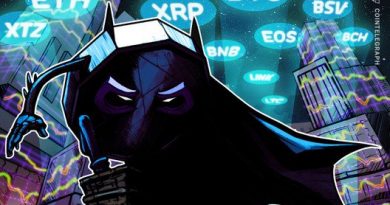First Abu Dhabi Bank completes cross-border payments testing on JPMorgan Onyx
The FAB pilot follows Bank ABC’s in Bahrain. JPMorgan also just launched its Tokenization Collateral Network on Onyx.
JPMorgan’s Onyx Coin Systems has scored another win in the Middle East with the completion of a blockchain-based cross-border payments pilot project with First Abu Dhabi Bank (FAB). The pilot phase was “executed seamlessly with satisfactory response times,” according to a statement.
The FAB pilot wound up weeks after a similar test in Bahrain, where Bank ABC had been testing the Onyx system and proceeded to a limited launch of services. FAB said it was continuing to explore the opportunities the system offers.
JPMorgan’s permissioned distributed ledger was launched in 2020 and has been gaining momentum in recent months. JP Morgan Onyx Digital Assets & Blockchain head Tyrone Lobban said earlier this month the platform currently processes between $1 billion and $2 billion a day.
FAB Bank completes blockchain #payments pilot with J.P. Morgan:#UAE First Abu Dhabi Bank has announced the successful completion of its J.P Morgan’s Coin blockchain based cross border payments.@laraonzeblock. #DigitalBanking https://t.co/q8CrApFaJG
— Urs Bolt (@UrsBolt) October 10, 2023
Besides its expansion in the Middle East, Onyx has been used for euro-denominated payments in Europe since June. That same month, it also launched interbank USD settlements in India with a consortium of six banks.
On Oct. 11, the first public trade was settled on JPMorgan’s new Tokenization Collateral Network, which also runs on the Onyx blockchain. Money market fund shares were tokenized and deposited at Barclays Bank as security for a derivatives exchange between JPMorgan and BlackRock.
Related: JPMorgan forecasts limited downside for crypto markets: Report
Mastercard announced it was testing its Multi Token Network in June, and Citigroup introduced its Citi Token Services in September.
JPMorgan was one of the participants in Project Guardian, with DBS Bank and Marketnode. The project, which concluded in June, was developed by the Monetary Authority of Singapore and Bank for International Settlements. It involved the creation of a liquidity pool of tokenized bonds and deposits for use in lending and borrowing.
JPMorgan CEO Jamie Dimon recently expressed his strong belief in artificial intelligence. He also called cryptocurrencies “decentralized Ponzi schemes.”



